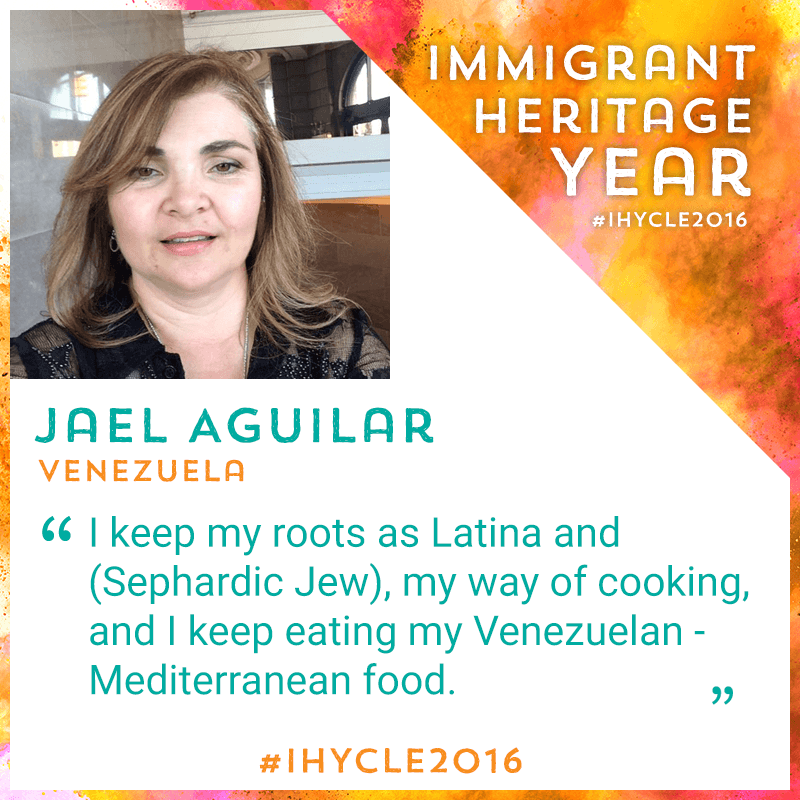
Where are you from?
I am from Venezuela
What was it like growing up?
Growing up in Venezuela was great until I graduated from college. Government changed and most of the young professionals started looking for a way to get out of the country either to improve their education or just to emigrate because of lack to jobs.
What brought you to Cleveland?
Cleveland opened another job’s door for me.
What were your first thoughts about coming to America? Did those change?
Yes, those thought definitely changed. I had come to America a few times as tourist and I thought life in this country was easier. When I came to study I realized that living here it was totally different. One of my experiences were to see people not being patient to listen to my accent or to answer any questions I had. Throughout the 22 years I have been living in this country I have witnessed a lot of changes. I think 9-11 changed many people’s point of view of International Newcomers living in this country specially changed their view about Latinos.I have been discriminated against at work because I spoke my native language and I have also been discriminated for my accent.
What challenges did you face transitioning here?
When I came to Cleveland I decided to continue taking the prerequisite courses I needed to be able to apply to the Master for Speech Language Pathologist Program. I took two courses at Cleveland State University during Spring 2016. I started having problems with one of the courses. I decided to reach out to the teacher so I would have a better understanding of the situation. The professor didn’t like me since the beginning. He was very rude and treated me as a Special Education student. In one of my visits to his office, he suggested me to go to see my doctor because he thought I had learning disabilities or speech problems. Therefore, I would need a note from the doctor so I could barely get D as a grade. It did not matter how hard I worked for that course he finally gave me an F as a grade. Most of my classmates were caucasian, one African American, and I was the only Latina in the course. Last day of class, my classmates commented the difference on the treatment they received from him and comparing to the one he had toward me. I have never felt so discriminated during my years living in this country.
What is your occupation?
I am the Site Coordinator for Luis Muñoz Marín Dual Language Academy.
How have other Clevelanders made you feel welcomed?
I have mixed feelings about the Clevelanders. Some of them have been nice while some others has been rude making fun of me criticizing my accent in English.
What traditions or customs do you continue to practice?
I keep my roots as Latina and (Sephardic Jew), my way of cooking, and I keep eating my Venezuelan-Mediterranean food.
What do you love about Cleveland?
I love the museums, and how Clevelanders are so passionate about their local sport teams. I admire the fact that it does not matter in what part of U.S they would live, they still feel like a Clevelander.
Why is it so important to welcome International Newcomers?
When we leave our countries, we come with a lot of dreams and expectations to start a new life full of opportunities. As International Newcomers, we have to make a tough decision of leaving our parents, brothers and sisters, husband, wife, and children behind not knowing when we’ll be able to see them again. When an individual emigrate to another place could feel homesick, depressed and sometimes disoriented.
What suggestions do you have to make Cleveland a more welcoming community?
I think the Community organizations should start working together creating an educational campaign. There should be like a coalition including religious organizations, local government, police department, post office, and the local media to inform Clevelanders about the future International Newcomers coming to this city. That way people will stop being judgemental about foreigners. Also, the city should provide a flyer or booklet with information for International Newcomers in different languages where they will be able to find the list of resources they could reach out.

